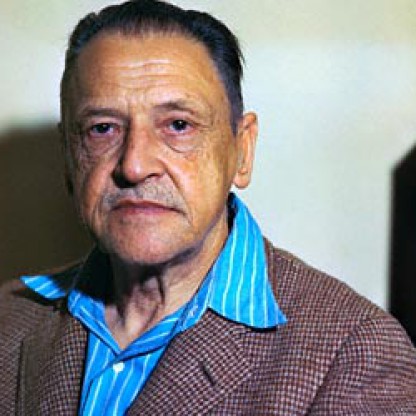
As per our current Database, Ludovico Ariosto has been died on 6 July 1533\nFerrara, Duchy of Ferrara.
When Ludovico Ariosto die, Ludovico Ariosto was 59 years old.
| Popular As | Ludovico Ariosto |
| Occupation | Writers |
| Age | 59 years old |
| Zodiac Sign | Libra |
| Born | September 08, 1474 (Reggio Emilia, Italian) |
| Birthday | September 08 |
| Town/City | Reggio Emilia, Italian |
| Nationality | Italian |
Ludovico Ariosto’s zodiac sign is Libra. According to astrologers, People born under the sign of Libra are peaceful, fair, and they hate being alone. Partnership is very important for them, as their mirror and someone giving them the ability to be the mirror themselves. These individuals are fascinated by balance and symmetry, they are in a constant chase for justice and equality, realizing through life that the only thing that should be truly important to themselves in their own inner core of personality. This is someone ready to do nearly anything to avoid conflict, keeping the peace whenever possible
Ludovico Ariosto was born in the Year of the Horse. Those born under the Chinese Zodiac sign of the Horse love to roam free. They’re energetic, self-reliant, money-wise, and they enjoy traveling, love and intimacy. They’re great at seducing, sharp-witted, impatient and sometimes seen as a drifter. Compatible with Dog or Tiger.










"The two persistent qualities of Ariosto's language are first, serenity – the evenness and self-contented assurance with which it urbanely flows, and second, brilliance – the Mediterranean glitter and sheen which neither dazzle nor obscure but confer on every object its precise outline and glinting surface. Only occasionally can Ariosto's language truly be said to be witty, but its lightness and agility create a surface which conveys a witty effect. Too much wit could destroy even the finest poem, but Ariosto's graceful brio is at least as difficult and for narrative purposes more satisfying."
— Thomas Greene, The Descent from Heaven, a Study in Epic Continuity
In 1508 Ariosto's play Cassaria appeared, and the next year I suppositi was first acted in Ferrara and ten years later in the Vatican. A prose edition was published in Rome in 1524, and the first verse edition was published at Venice in 1551. The play was translated by George Gascoigne and acted at Grays Inn in London in 1566 and published in 1573, which was later used by Shakespeare as a source for The Taming of the Shrew.
In 1516, the first version of the Orlando Furioso in 40 cantos, was published at Ferrara.
The cardinal went to Hungary in 1518, and wished Ariosto to accompany him. The poet excused himself, pleading ill health, his love of study, and the need to care for his elderly mother. His excuses were not well-received, and he was denied even an interview. Ariosto and d'Este got into a heated argument, and Ariosto was promptly dismissed from Service.
The third and final version of the Orlando Furioso, in 46 cantos, appeared on 8 September 1532.
After the death of his father, Ludovico Ariosto was compelled to forgo his literary occupations and take care of his family, whose affairs were in disarray. Despite his family obligations, Ariosto managed to write some comedies in prose as well as lyrical pieces. Some of these attracted the notice of Cardinal Ippolito d'Este, who took the young poet under his patronage and appointed him one of the gentlemen of his household. Este compensated Ariosto poorly for his efforts; the only reward he gave the poet for Orlando Furioso, dedicated to him, was the question, "Where did you find so many stories, Master Ludovico?" Ariosto later said that the cardinal was ungrateful, that he deplored the time which he spent under his yoke, and that if he received some small pension, it was not to reward him for his poetry — which the prelate despised — but for acting as a messenger.
“A statue no less jocund, no less bright,/ Succeeds, and on the writing is impressed;/ Lo! Hercules’ daughter, Isabella hight,/ In whom Ferrara deems city blest,/ Much more because she first shall see the light/ Within its circuit, than for all the rest/ Which kind and favouring Fortune in the flow/ Of rolling years, shall on that town bestow.” Orlando Furioso, Canto XLII.










